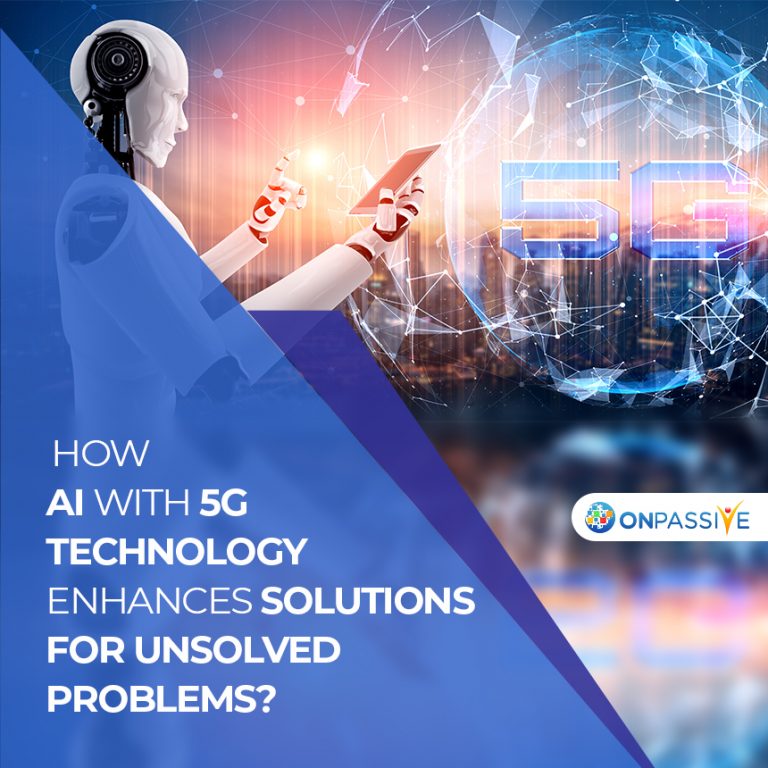
5G is the ultimate future of the edge. Even though it’s quite a while away from widespread deployment, 5G is a critical segment in developing cloud-computing ecosystems towards more distribution within a network.
The networking industry will contribute 1 trillion dollars worldwide on 5G, supporting quick worldwide adoption of mobile, edge, and embedded devices in nearly every circle of our lives between now and 2025.
5G will be a prime focus for the pattern under which more workloads are executed and data dwells on edge devices.
It will demonstrate groundwork as revolutionary artificial intelligence, offering an environment where data-driven algorithms will control each cloud-driven process, device, and experience.
Similarly, the massive AI will be vital for guaranteed 5G networks that enhance from scratch to end.
The combination of 5G internet with artificial intelligence will show a drastic change worldwide. This combination is interlaced on one platform, that they will make incredible opportunities and creates new opportunities.
5G internet is about revealing faster data transfer and changes the present comprehensions of mobile technology and influences all parts of life. With these, complicated attempts will develop the commercial execution of 5G technology.
The innovations show how the impact of 5G on AI is interweaved since they help take care of human-made problems and widen the knowledge circle. Since we are residing in innovative progression, such issues can’t be handled as the immediate cause of this progression.
It is easy to discover solutions for unsolved problems with the use of artificial intelligence in 5G. It can be very well clarified by taking an example from health-related references.
Studies reveal that thirty-three percent of the population leads to some cancer. But there is no specified method to show factors and reasons for health-related references.
However, the use of 5G stores vast volumes of data on malignancies. Through artificial intelligence, we try to analyze the patterns and records the factors and attributes of cancer.
Top Emerging Technologies of Artificial Intelligence in 2020
Embedded Technology
It is essential to explain how the impact of 5G on Artificial Intelligence have collaborated. 5G is depicted as the cutting-edge mobile application technology of not distant future and will improve the speed and integration of different innovations.
It will drive by speed, quality of service, reliability, and much more to transform the current way utilized with the internet and its relevant resources.
It has to comprehend that AI is ready to permit machines and frameworks to work with intelligence levels like human beings.
In the backend, 5G is helping in online simulations for
- Analysis
- Reasoning
- Data fitting
- Clustering
- Optimizing.
AI will be more reliable and available at the speed of light.
5G speeds up the services that have on the cloud, which shows an impact that gives similarities to locale to the services.
Artificial intelligence examines similar data faster and can learn quickly to create as per the user’s needs.
5G additionally guarantees tremendous developments for conventional mobile applications. 5G will improve the capabilities of conventional networking.
Even the speed over wired technology or optical fiber technology goes further over a 5G network, and advancements help the uses of IoT in different fields, including
- Business
- Manufacturing
- Medical services
- Automobile industry.
5G will be the essential innovation for future IoT advancements that connect and operate entire organizations, helping differentiated applications with a uniform technical structure.
Future Generation Converging with AI Systems on Chip
5G unites digital cellular technology with Long-Term wireless Evolution and Wi-Fi interfaces. It can be deployed in cross-technology network interfaces. 5 G will consistently empower each edge gadget that wanders among in-house and wide-zone platforms.
The innovation’s adoption results in a convergence of the radio spectrum for these different radio channels and a combination of network interfaces down to single chips that keep up consistent communications over different radio-access applications.
These 5G interfaces will, without a doubt, be converged with neural network processing circuitry into low-power, low-cost frameworks on-chip for some mass-market AI applications.
The Intelligent Edge
These advances will interact at the intelligent-edge network using processing power, artificial intelligence, and advanced connectivity like 5G.
The intelligent-edge is characterized by devices employed through a network, and users or tools create the data that has the benefits of AI processing and 5G network, allowing them to work autonomously and proficiently.
The next generation of AI apps are distributed efficiently, 5G networks should turn out to be persistent, self-mending, self-overseeing, self-securing, self-fixing, and self-enhancing.
That depends on implanting machine learning and other AI models that,
- Automates application-level traffic routing
- Quality-of-service assurance
- Performance management
- Root-cause analysis
- Other operational tasks are more scalable, predictable, rapidly, and efficiently than manual methods alone.
This capacity, known as AIOps, will be critical to 5G that guarantees quicker, reliable, and RF-proficient communication than earlier remote works.
AIOps capabilities should be essential for virtual networks, and a multi-cloud management suite will be utilized to oversee 5G networks and related applications from start to end.



Animesh Roy
3 years ago
serhane fouad
3 years ago
Phulmati banra
3 years ago
Linus Mwintuu
3 years ago
Joel Salazar
3 years ago